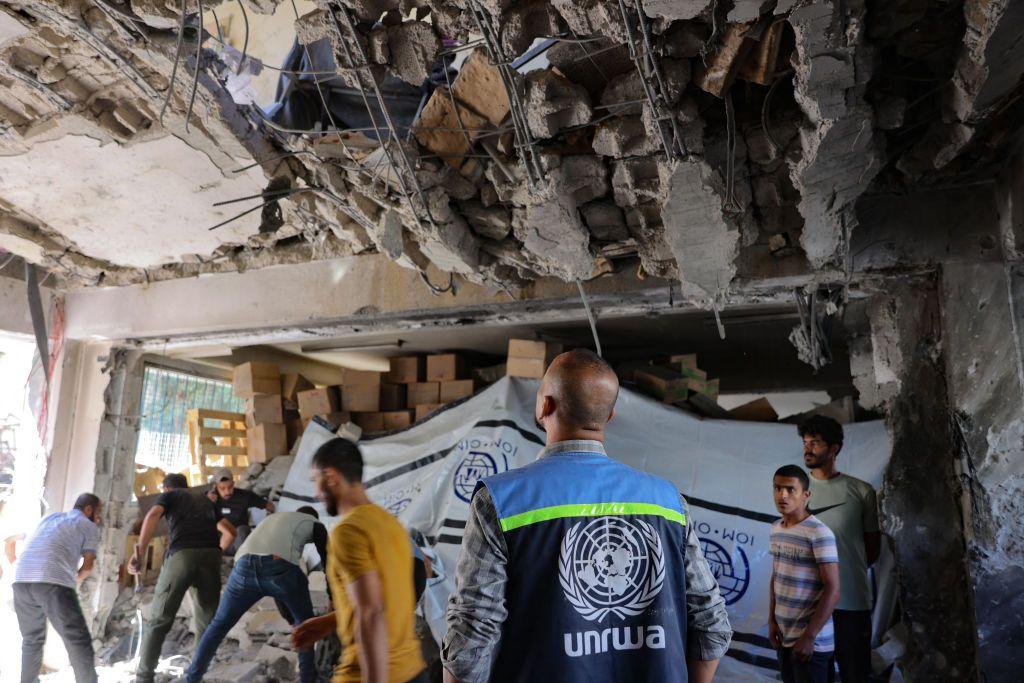Israel has recently enacted two significant laws that prohibit the United Nations Relief and Works Agency for Palestine Refugees in the Near East (Unrwa) from operating within its borders and in the occupied territories it controls. The laws were passed with overwhelming support in the Israeli Knesset, signaling a definitive stance against the agency. The decision has raised alarms among several countries including the United States, United Kingdom, and Germany, all of which have expressed serious concerns regarding the implications of such a move. Specifically, the U.S. State Department highlighted Unrwa’s critical role in providing humanitarian aid and support to the people of Gaza, where the agency’s services are vital for the survival of over two million residents who heavily rely on assistance.
Unrwa has been instrumental in delivering various forms of support to Palestinians, including education, healthcare, and emergency assistance, particularly in volatile environments such as Gaza. Israel’s accusations against the agency posit that it has been complicit in acts of violence associated with Hamas, referencing the alleged involvement of some Unrwa staff in the attack on October 7, 2023. These allegations have fueled the Israeli government’s efforts to undermine Unrwa’s operations, portraying the agency as a liability rather than an asset in the context of humanitarian aid. This narrative has found a receptive audience within the Israeli parliament, where sentiments against elements perceived as supportive of Hamas resonate strongly.
The implications of these laws take on grave significance in the context of ongoing humanitarian crises in Gaza. Unrwa’s Commissioner-General, Philippe Lazzarini, has condemned the Knesset’s decision as “unprecedented” and indicative of a troubling trend that not only exacerbates the challenges faced by Palestinians but also contravenes the principles outlined in the UN Charter and international law. Lazzarini emphasized that this move would inevitably deepen the suffering of the Palestinian people, whose dependencies on the services provided by Unrwa have only intensified since the escalation of conflict in Gaza last year. The diminishing capacity of Unrwa to operate effectively in the region raises fears about the dire consequences for an already vulnerable population.
Since the onset of the current conflict, the presence of Unrwa has emerged as a fundamental component of the operational landscape for humanitarian aid distribution in Gaza. The agency’s efforts are critical for alleviating the distress experienced by civilians amid the chaos of warfare and blockades. As the humanitarian situation degrades, with access to essential services hindered, the importance of Unrwa’s role becomes increasingly pronounced. Without the agency’s support, millions of Palestinians are left perilously exposed to the ramifications of the ongoing conflict, heightening concerns over potential humanitarian disasters.
Moreover, the decision to restrict Unrwa’s operations comes at a time when international scrutiny regarding Gaza’s humanitarian situation is acutely prominent. With many civilian lives hanging in the balance, the international community appears divided over how best to respond to the complex realities on the ground. Countries like the United States have maintained a stance of advocating for the preservation of humanitarian institutions, underscoring the crucial function that Unrwa fulfills in delivering vital resources and services. The fear is that sidelining such an agency could lead to broader destabilization within the region, with repercussions that extend well beyond the immediate conflict.
Ultimately, the intersection of international law, humanitarian needs, and regional security dynamics continues to pose significant challenges in the Israeli-Palestinian context. The Israeli government’s latest legislative actions against Unrwa reflect broader tensions that complicate efforts to find a workable resolution to the Israeli-Palestinian conflict. As humanitarian agencies grapple with the implications of reduced operating capacities, the situation demands heightened attention from global actors to ensure that humanitarian principles are upheld and that aid reaches those in desperate need. The success of these endeavors hinges on the ability of the international community to balance diplomatic pressure with the need for immediate humanitarian responses to avert further suffering.

